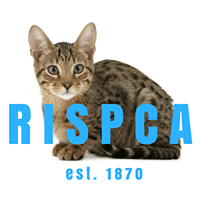
 WARWICK, RI — On Dec. 20, Rhode Island Society for the Prevention of Cruelty to Animals’ officials and two Warwick Animal Control officers investigated a dog breeder at 409 Toll Gate Road, following up on several complaints of alleged mistreatment and neglect, finding no illegal activity.
WARWICK, RI — On Dec. 20, Rhode Island Society for the Prevention of Cruelty to Animals’ officials and two Warwick Animal Control officers investigated a dog breeder at 409 Toll Gate Road, following up on several complaints of alleged mistreatment and neglect, finding no illegal activity.
Even so, the breeder has agreed to move the dogs to an indoor heated shelter.
“This was of his own accord, as he was not legally obligated to do so. The RISPCA donated 3 XL dog crates, which the owner was going to use to house the dogs inside,” the society wrote on their website.
On Friday, the Warwick Police Department replied to several comments on their Facebook page about the circumstances of the dogs. Officers performed a wellness check on the animals Friday, according to the update.
“The are healthy, not in distress, the owner is in full compliance and the temperature inside their shelters was measured to be 40 degrees,” the department wrote.
RISPCA announced the details of their investigation on their website and Facebook page the day they visited the property. Nonetheless, complaints and calls to the organization continued, prompting the latest update from the society.
“The Rhode Island SPCA has been inundated with complaints regarding 409 Tollgate Road in Warwick. Once again, we would like to make It clear that we do not condone this method of housing dogs. However, we are law enforcement agency, and therefore, we are legally and ethically obligated to uphold the law as it is written,” the society wrote Friday.
The law governing such breeding operations, Rhode Island General Law 4-13-42, has unclear language that provides loopholes, complicating enforcement, the society reported.
“We have gone as far as seeking the interpretation of legal counsel on how to apply this law to this particular case.”
The relevant portions of the law read:
- 4-13-42. Care of dogs.
(a) It shall be a violation of this section for an owner or keeper to:
(1) Keep any dog on a permanent tether that restricts movement of the tethered dog to an area less than one hundred thirteen square feet (113 sq. ft.), or less than a six foot (6′) radius at ground level.
(2) Tether a dog with a choke-type collar or prong-type collar.
(3) Keep any dog tethered for more than ten (10) hours during a twenty-four (24) hour period or keep any dog confined in a pen, cage, or other shelters for more than fourteen (14) hours during any twenty-four (24) hour period.
(4) Keep any dog outside either tethered, penned, caged, fenced, or otherwise confined without access to an outdoor housing facility when the ambient temperature is beyond the industry standard for the weather safety scale as set forth in the most recently adopted version of the Tufts Animal Care and Condition Weather Safety Scale (TACC) if the dog is showing signs of poor health due to the weather conditions.
The RISPCA reported that the results of their investigation of 409 Tollgate road demonstrated:
1-The length of the tethers were compliant with section (a)(1)
2- All of the dogs were in good body condition and showed no signs of cruelty or neglect.
3-All dogs had access to outdoor housing facilities/shelters, that was sufficient to protect them from the inclement elements. On more than one occasion, temperature readings were taken inside of the shelters with the use of an infrared thermometer and readings were between 40-50 degrees Fahrenheit. The TACC scale, as mentioned in section (a)(4), was applied here, despite the fact that portion of the statute only applies when the animal is “without access to an outdoor housing facility.” The TACC scale indicated a “potentially unsafe situation, depending on breed, time outdoors. Notify owner of the risk and proper shelter requirement.” As previously stated, it was determined that proper shelter was available.
4-All dogs had access to clean, fresh, potable water.
RIGL 4-13-42, also contains a number of exemptions to the 10-hour tethering requirement. One of those reads as follows:
(4) To licensed hunters, field trial participants, or any person raising or training a gun dog or hunting dog, provided that the licensed hunter or field trial hunt test participant is actively engaged in hunting, training, or field trial hunt testing or is transporting the dog to or from an event;
“The owner of the dogs at 409 Tollgate Road had provided sufficient evidence that he is raising these dogs for hunting purposes. Once again, despite our personal beliefs on that matter, the law affords an exemption. To clarify even further, the law states “any person” raising or training a gun dog or hunting dog. It only states that the “licensed hunter” or “field trial hunt test participant”, must be “actively engaged in hunting or training,” the society wrote.
“The reason we are going to such efforts to clarify the legal interpretation of this law is to ensure the general public that we have been doing everything legally permissible to ensure the health and well-being of these dogs.”
“We have already begun preparations for the 2018 legislative season, and we will be looking for a way to improve the language in RIGL 4-13-42, so that this issue does not arise again in the future,” the RISPCA wrote.
This is a test
